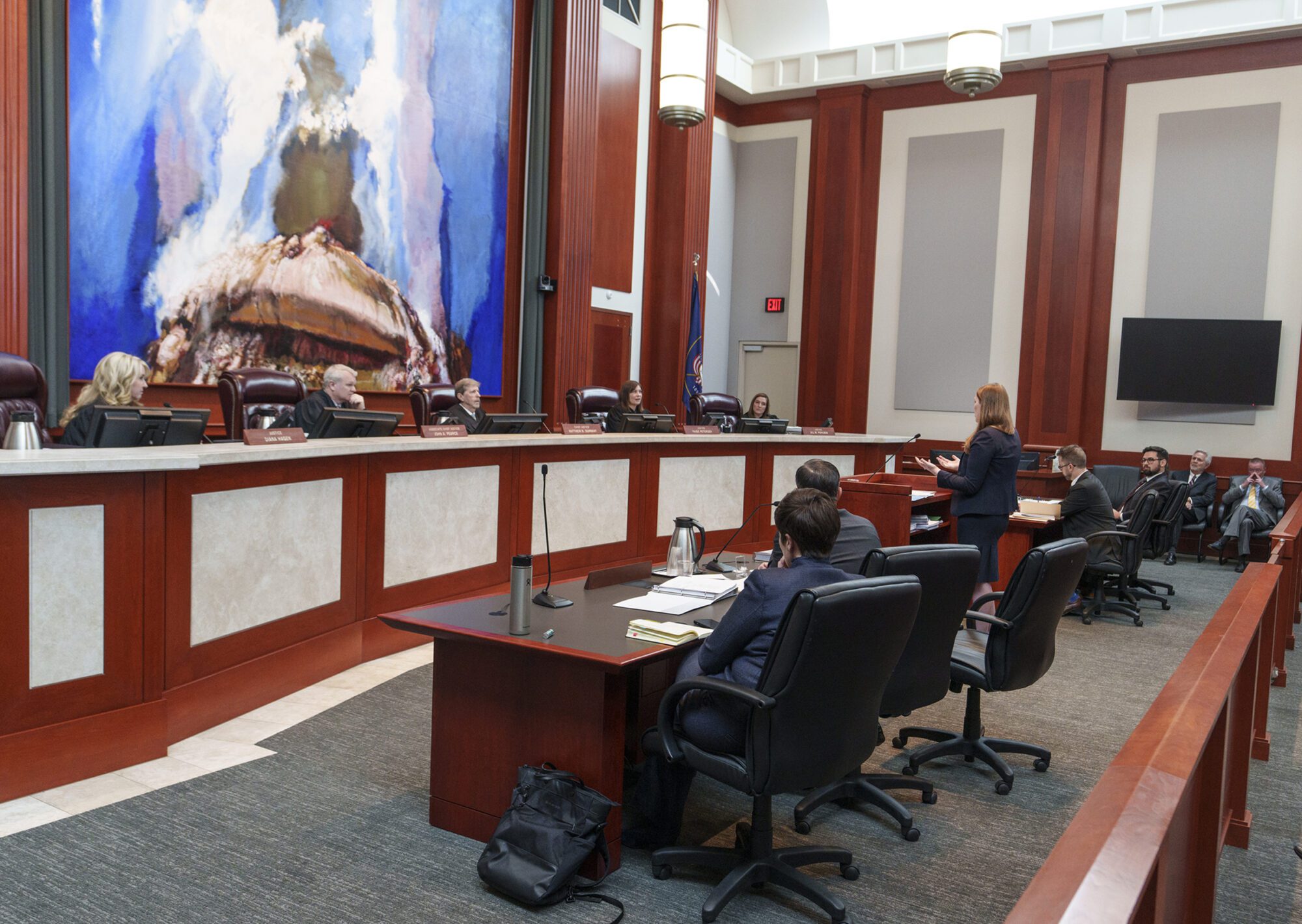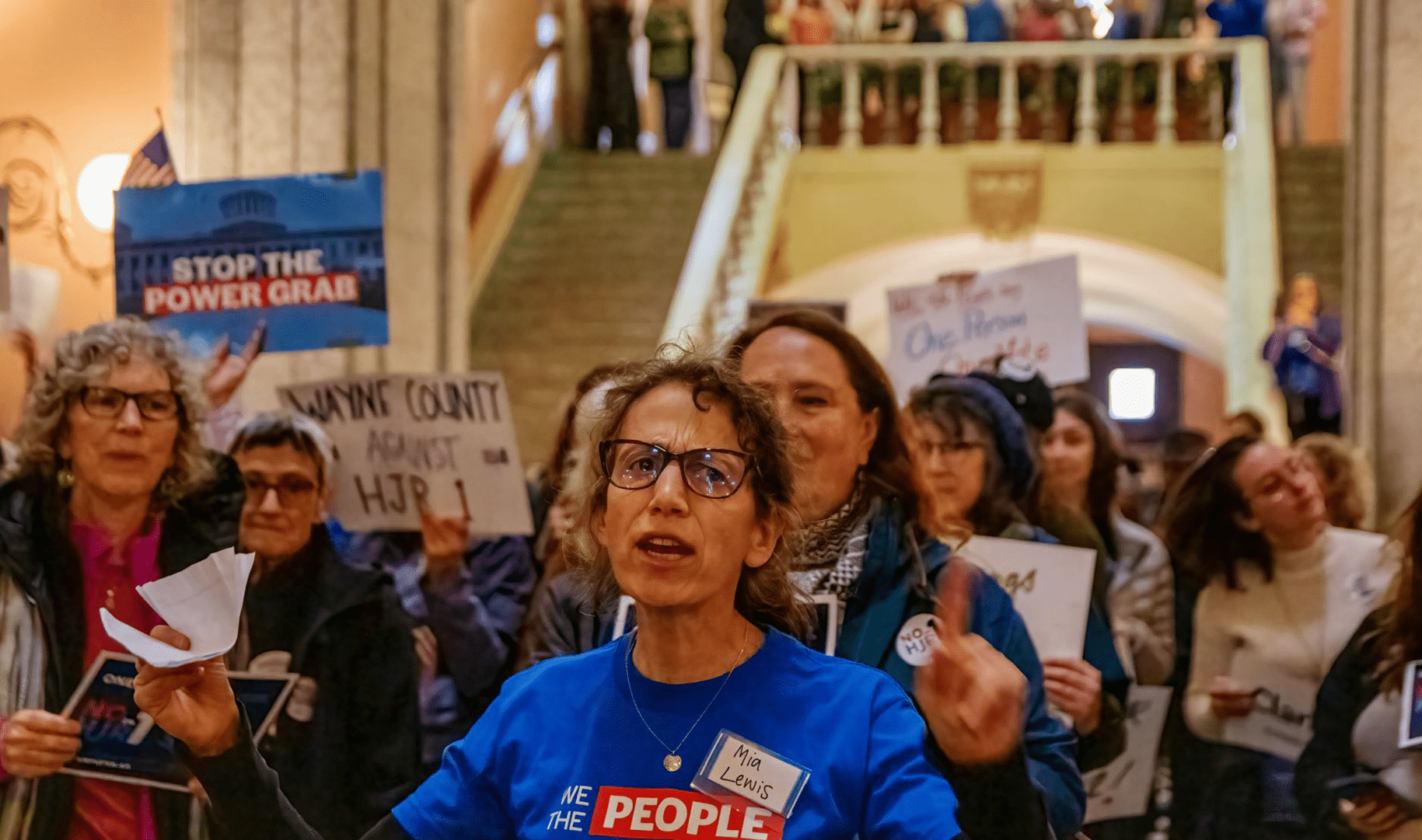Utah’s Highest Court Safeguards the People’s Right to Direct Democracy
The decision is a blow to the state GOP’s attempts to ignore a citizen initiative that had reformed redistricting. But the state’s gerrymandered maps remain in effect for now.
| July 12, 2024

Utahns in 2018 approved a slate of ballot measures that legalized medical cannabis, expanded Medicaid, and set up an independent redistricting process. All three reforms had been initiated by citizens, and put on the ballot after a painstaking petition-gathering campaign.
Utah lawmakers responded by rewriting if not gutting the three propositions.
On redistricting, the GOP-led legislature repealed the measure’s centerpiece, a requirement that new maps be drawn by an independent commission. Freed from that constraint, lawmakers then proceeded in late 2021 to design a congressional map that eliminated the state’s only competitive district, “cracking” Salt Lake City into four to establish four reliably Republican seats.
The Utah Supreme Court pushed back on Thursday, issuing a landmark and unanimous ruling that affirmed a vital right to direct democracy and restricted lawmakers’ ability to ignore that power.
“We hold that when Utahns exercise their right to reform the government through a citizen initiative, their exercise of these rights is protected from government infringement,” Justice Paige Petersen wrote in her opinion.
The ruling comes with many limitations and caveats. It does not by itself strike down the GOP’s gerrymandered maps, which remain in use for now. It does not shield initiatives from all rollback. It doesn’t even apply to all ballot measures, just those that “reform the government.” Still, it gave Utahns a new tool to challenge legislators who disregard their initiatives.
Until now, the legislature could do virtually whatever it wanted in response to citizen measures. Lawmakers will now face a tougher test when they try to modify measures that deal with government rules and structures, and organizers may feel greater confidence that the statutes they jumpstart have at least some protection.
“This is a historic ruling,” said Ben Phillips, a lawyer with Campaign Legal Center who took part in the case on behalf of plaintiffs. “The legislature cannot, in any way it wants, just repeal any initiative that the people pass.” This is the first time the court addressed whether Utahns have a basic right to change their government, Phillips explained, and it held that giving lawmakers carte blanche to override ballot measures “would render that fundamental right meaningless.”
We keep you up to date on democracy.
The ruling comes as some GOP-led states like Arkansas and Idaho have pursued aggressive efforts to narrow the scope of direct democracy. New laws have made it harder to get initiatives on the ballot. Statewide officials have resisted routine steps to stall the process. And lawmakers have tried to raise the threshold for passage, while circumventing some successful measures.
In response, some proponents of the initiative process have turned to state constitutions to protect direct democracy. Many constitutions contain provisions that pertain to access to ballot initiatives, but many state courts have taken a narrow view of them. Mississippi justices even struck down the initiative process altogether in 2021. Idaho’s supreme court took a different path the same year, striking down a new Republican law that had restricted ballot measures in a decision that affirmed “the people’s fundamental right to legislate directly.”
As a result, organizations like Reclaim Idaho, whose success in pushing progressive measures like Medicaid expansion has angered GOP lawmakers in the state, have been able to place new measures on the ballot. Idahoans in November will decide on an initiative, again supported by Reclaim Idaho, that would move the state to a ranked-choice voting system.
In Utah, voting rights groups reacted with anger to lawmakers’ ignoring Proposition 4, the 2018 initiative on redistricting. “When the Legislature did indeed do what they wanted anyway, they confirmed the beliefs of the discouraged, the cynical, all the people who believe their votes and their opinions don’t matter,” Catherine Weller, then president of the League of Women Voters of Utah, said in early 2022.
Several groups, including the League of Women Voters, filed a lawsuit that year against the new map. They argued that the new districts were an unconstitutional partisan gerrymander; other state supreme courts have recognized partisan-gerrymandering claims, even as the U.S. Supreme Court has refused to. But these groups also raised another claim: that it was unconstitutional for lawmakers to just gut the 2018 redistricting initiative.
They rooted their claim in Article I, Section 2, of the Utah Constitution, which states that “the people” have “the right to alter or reform their government as the public welfare may require.” The lawsuit argued that, in passing a statute to set up a new redistricting process, voters exercised their power to “alter or reform their government,” and that the legislature violated that right when it repealed the powers of the independent redistricting commission.
The state supreme court agreed with the plaintiffs’ argument that Utahns have a right to “alter or reform their government.” Peterson wrote that “government-reform initiatives are constitutionally protected from unfettered legislative amendment, repeal, or replacement.”
While the ruling was immediately celebrated by voting rights groups, it also left much unresolved.
For one, the decision doesn’t protect all initiatives, only those that concern “government reform.” What exactly falls under that purview will likely be the subject of future litigation. Even then, the court said that lawmakers retain the power to change citizen initiatives; but changes cannot “impair the reforms” unless that impairment is “narrowly tailored to advance a compelling government interest.”
This test, known as “strict scrutiny,” is generally difficult to meet. Still, whether changes are “narrowly tailored,” and whether lawmakers’ interest is “compelling,” is left to courts to decide.
The court did not even say whether Senate Bill 200—the specific legislation at issue in this case, with which lawmakers gutted Prop 4 and ended independent redistricting reform—crossed that line. It affirmed the people’s protected right to reform their government, but it did not provide any answer as to whether the GOP’s decision to gut the redistricting initiative violated that right.
Instead, they sent the case back to the trial court to hear arguments on that point, a process that will take a lot of additional time. (They also did not address whether the Utah Constitution bans partisan gerrymandering.)
The court has already drawn scrutiny for how long this case has dragged on: It heard arguments in July 2023 and waited roughly a year to issue a ruling.
The delay, and their decision to send the case back to a district court, guarantees that the state will again elect its members of Congress this year under the same maps as in 2022, despite the allegation that they were unconstitutionally drawn.
Still, if the lower court finds that Utah lawmakers lacked a “compelling government interest” in gutting the 2018 redistricting reform, it may end up reinstating that proposition, and the state’s maps would have to be redrawn in advance of the 2026 elections.
There’d need to be plenty of additional litigation before any new districts are ordered. But on Thursday at least, advocates were hopeful that the court’s ruling would bring back redistricting reform and lead to fairer maps.
Phillips, the Campaign Legal Center attorney, thinks the plaintiffs will win again in district court. He believes that a judge will find that GOP lawmakers’ law gutting Prop 4 fails strict scrutiny and reinstate the independent commission. “No matter what compelling interest [lawmakers] assert, it’s hard to imagine that completely gutting Prop 4 would be narrowly tailored,” he said. “The ruling is an important step in ensuring that Prop 4 is back in effect, with all of its provisions for independent redistricting.”
He added, “The bottom line is that we overcame an important hurdle on the way to fair maps.”
Sign up and stay up-to-date
Support us
Bolts is a non-profit newsroom that relies on donations, and it takes resources to produce this work. If you appreciate our value, become a monthly donor or make a contribution.




